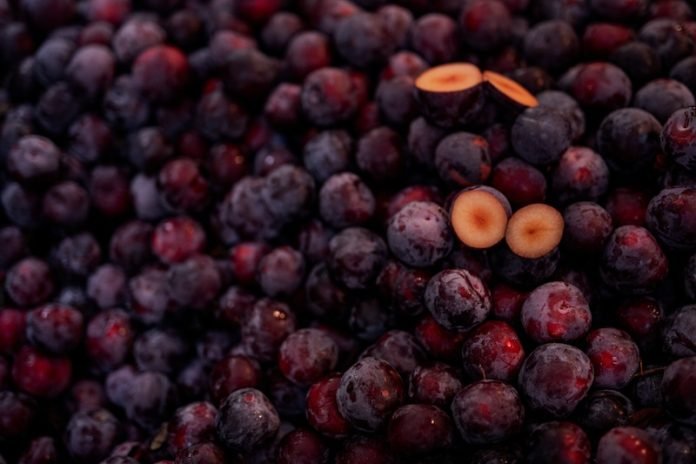
A recent study published in The Journal of Nutrition has highlighted the potential benefits of daily prune consumption in reducing inflammation markers associated with bone signaling pathways and mitigating the effects of bone loss in postmenopausal women.
Bone loss is a prevalent concern, affecting more than 50% of women over the age of 50, with no known cure. While medications and hormone therapies are available, they often require lifelong management and entail certain risks.
Therefore, it is crucial to explore non-pharmacological approaches, such as lifestyle and dietary choices, that can influence the progression and management of bone loss.
The study, led by Principal Investigator Mary Jane De Souza from Pennsylvania State University, revealed significant reductions in inflammatory cytokines and activated monocytes when 50 to 100 grams of prunes (approximately 5-12 prunes) were incorporated into the daily diet.
These inflammatory markers play a role in controlling inflammation and are associated with bone loss.
Specifically, the study observed reductions in Tumor Necrosis Factor-α with the consumption of 50 grams of prunes daily, and reductions in Interleukin-1β, Interleukin-6, Interleukin-8 secretions, as well as activated monocytes, when 100 grams of prunes were consumed daily, compared to diets without prunes.
Co-author Connie Rogers from the University of Georgia suggested that the presence of various bioactive compounds in prunes, including vitamins, minerals, phenolic acids, and polyphenols, likely work together to suppress activated monocytes and their secretion of inflammatory cytokines associated with bone resorption.
The study is an ancillary part of a larger 12-month randomized control trial known as the PRUNE study.
This trial aimed to explore immune, inflammatory, and oxidative stress markers related to the bone-protective effects of prunes in postmenopausal women aged 55-75 years who refrained from certain phenolic supplements or fruits containing phenolic compounds before the study.
The 183 participants were divided into three groups: one with no prunes, one with 50 grams of prunes daily, and one with 100 grams of prunes daily.
Participants followed the prune protocol for 12 months, with compliance monitored through daily logs. Immune, inflammatory, and oxidative stress markers were measured at both the beginning and the end of the intervention.
Beyond prune intake, all participants received a daily dose of calcium and vitamin D3 to meet recommended dietary allowances and followed a free-living diet.
Mary Jane De Souza emphasized the significance of these findings, suggesting that they contribute to the growing body of research investigating the concept of “food as medicine.”
Previous research led by De Souza had already demonstrated the connection between hip bone integrity and daily prune consumption, underscoring the potential of prunes in mitigating bone loss among postmenopausal women.
Donn Zea, the executive director of the California Prune Board, expressed their commitment to rigorous nutrition research and the role of California Prunes in promoting health and potentially reducing the risk of chronic diseases.
A serving of 4-6 California Prunes, at about 100 calories, provides a nutrient-dense superfood rich in vitamins, minerals, and plant compounds, making them a valuable dietary tool for enhancing health outcomes.
In conclusion, the study suggests that daily consumption of prunes may have a positive impact on reducing inflammation markers related to bone health and mitigating the effects of bone loss in postmenopausal women, offering a non-pharmacological approach to improving bone health.
If you care about nutrition, please read studies about the best time to take vitamins to prevent heart disease, and vitamin D supplements strongly reduce cancer death.
For more nutrition information, please see recent studies about plant nutrient that could help reduce high blood pressure, and these antioxidants could help reduce dementia risk.
The research findings can be found in The Journal of Nutrition.
Copyright © 2023 Knowridge Science Report. All rights reserved.



